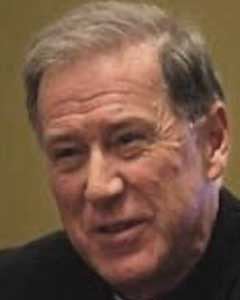St. Luke writes that following the Ascension of the Lord, the disciples were gathered in an upper room “constantly devoting themselves to prayer.” A number of women joined them, including Mary, the mother of Jesus (Acts 1:14).
One wonders what the subject of their prayers might have been—the hope of an imminent return of their Lord; the manner in which they would respond to the Great Commission, taking the gospel into all the world; the timing of the promised gift of the Holy Spirit to empower them for that work; and how indeed they would experience the coming of the Spirit.
Since those first few days of the church, the time between Ascension Day and the Day of Pentecost has been marked by calls to prayer for strength and wisdom in bearing a faithful witness to the gospel, for a fresh outpouring of the Holy Spirit to grace and guide the church in every age.
Calls of this kind have a long history through the World Council of Churches. In the spirit of that long-standing tradition, the Archbishops of Canterbury and York, in 2016, invited “a wave of prayer” across the Church of England. The response, according to Justin Welby, was “astonishing.” Thousands of people joined in—not just Anglicans, but people of many other denominations, too, and not just in England, but in many other countries around the world. That response inspired the archbishops to launch “Thy Kingdom Come,” a global call to prayer between Ascension Day and the Day of Pentecost, 2017.
In calling our church to participate, I am asking that with special intent we pray for fresh outpourings of the Holy Spirit to strengthen us in a variety of ministries to which we are deeply committed in local contexts and across the country.
Thursday, May 25—Ascension Day
Let us pray for congregational health and vitality in the spirit of the Marks of Mission embraced by Anglicans worldwide.
Friday, May 26
Let us pray for initiatives in evangelism nurturing people for lifelong discipleship, for our schools for ministry, for Indigenous catechist programs, for our theological colleges.
Saturday, May 27
Let us pray for the protection and nurture of children, for youth and young adult ministries; for suicide prevention programs, especially among Indigenous youth; for ministries that celebrate the minds, hearts, voices and works of young people in devotion to Christ.
Sunday, May 28—Seventh Sunday of Easter (Sunday after Ascension Day)
Let us pray for all our partnerships in the gospel—within our own church and with other churches; for companion diocese relationships across the world; for our church’s companionship with the Episcopal Diocese of Jerusalem.
Monday, May 29
Let us pray for healing and reconciliation within our church and our country, for integrity in living out the Primate’s Apology (1993), in honouring the United Nations Declaration on the Rights of Indigenous Peoples and in responding to the Calls to Action from Canada’s Truth and Reconciliation Commission.
Tuesday, May 30
Let us pray for the work of the Anglican Healing Fund and for community-based projects for recovery of language and culture, for celebrating Aboriginal identity.
Wednesday, May 31
Let us pray for all efforts in partnership with Indigenous elders, youth, bishops and clergy in building a truly Indigenous church within the Anglican Church of Canada.
Thursday, June 1
Let us pray for ministries with those caught in the grip of poverty, for programs addressing its systemic causes and for initiatives to eradicate poverty.
Friday, June 2
Let us pray for ministries devoted to addressing violence of every kind—domestic and societal, gender-based, ethnic and religious-based; and for all ministries grounded in commitments to dignity and justice for all people.
Saturday, June 3
Let us pray for ministries focused on the care of creation, for our calling to be healers of the Earth.
Sunday, June 4—The Day of Pentecost
Let us pray for a celebration of the many languages in which the gospel of Christ is proclaimed and the rich diversity of cultures for which our church is known; for the strengthening of our life together in Christ and for our common witness to the gospel.
This call to prayer will be answered in a variety of ways. Some will respond through the daily round of morning and night prayers, some in a round of prayers in the early evening of these nine days.
Some may be in the quiet of a chapel or the chancel of the church; some in the space of a circle of friends gathered in prayer in one of their homes. Some may choose to walk a labyrinth; others may organize walks in the community with prayer at various locations.
I have every confidence that in taking up this call you will be creative in the way you pray.





